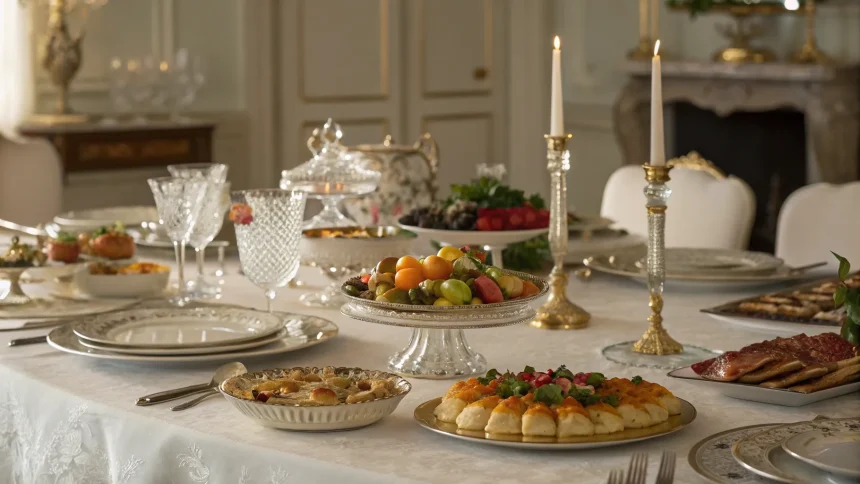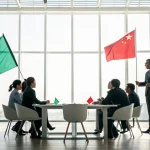China’s government is employing soft power tactics, including lavish banquets and culinary diplomacy, as part of its broader strategy to enhance its global influence amid growing international scrutiny of its authoritarian governance model.
Foreign policy analysts have observed an uptick in China’s use of traditional hospitality and food culture to create goodwill with foreign dignitaries, business leaders, and cultural figures. This approach represents one facet of China’s multidimensional effort to improve its international image while maintaining strict domestic control.
Food As Foreign Policy
Chinese officials have long recognized the potential of their country’s rich culinary traditions as a diplomatic tool. State banquets featuring regional specialties and carefully choreographed dining experiences have become a hallmark of China’s reception for visiting officials.
A former diplomat who attended several such events noted, “The contrast can be striking. Discussions about human rights concerns might be deflected, but the hospitality is unfailingly generous. The dining experience is designed to showcase China’s cultural heritage and create a personal connection.”
This strategy aligns with President Xi Jinping’s emphasis on promoting Chinese culture globally while strengthening the Communist Party’s domestic authority. Official state media frequently highlights these elaborate feasts as examples of China’s cultural confidence and hospitality.
Competing Narratives
China’s culinary diplomacy exists within a complex international environment where Western democracies increasingly challenge its human rights record and territorial claims. The Chinese government has responded with a two-pronged approach: firm rejection of criticism while simultaneously working to build positive relationships through cultural exchange.
International relations experts point to several key aspects of this strategy:
- Using traditional culture, including food, to present China as a civilization rather than just a political system
- Creating personal connections with foreign guests that may soften political differences
- Demonstrating China’s prosperity and organizational capacity through elaborate events
“Food diplomacy allows China to showcase its cultural heritage while sidestepping more contentious issues,” explained Dr. Lin Wei, professor of international relations at a European university. “It’s a subtle but effective way to build relationships.”
Mixed Results
The effectiveness of China’s culinary charm offensive remains difficult to measure. While some visitors report being impressed by the hospitality they receive, others maintain that fundamental concerns about China’s political system cannot be addressed through cultural exchanges alone.
Business leaders who regularly travel to China acknowledge the impact of these experiences. “The hospitality is extraordinary, and it does create a certain goodwill,” said one executive who requested anonymity. “But most visitors can separate the warmth of their hosts from the broader political realities.”
Public opinion surveys in democratic countries continue to show declining views of China’s government, suggesting limits to the effectiveness of soft power initiatives. However, in regions where China has made significant economic investments, particularly in Africa and parts of Asia, these cultural outreach efforts appear to complement economic ties.
As tensions between China and Western democracies persist, the country’s leadership appears committed to utilizing every available tool of soft power, including its rich culinary traditions, to present a positive image to the world while maintaining its authoritarian system at home.
Whether these efforts will succeed in improving China’s global standing remains an open question, but the strategy highlights the Chinese government’s recognition that winning hearts and minds requires appealing to all the senses—including taste.







